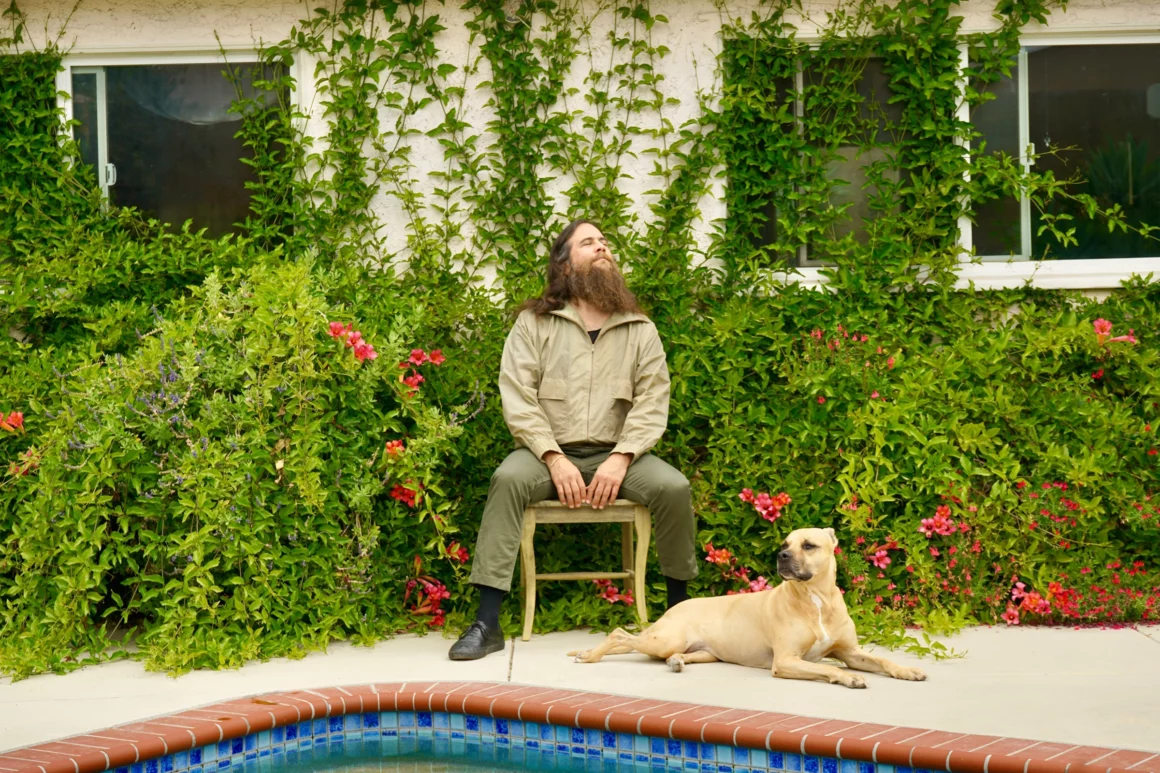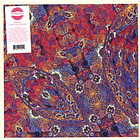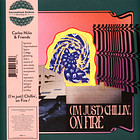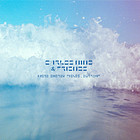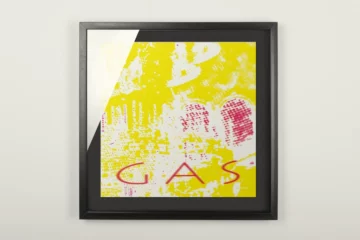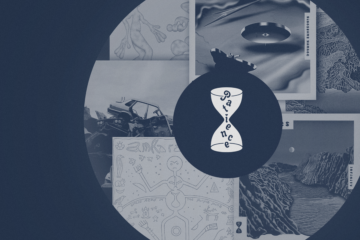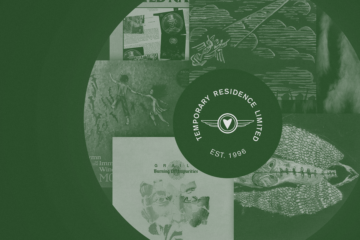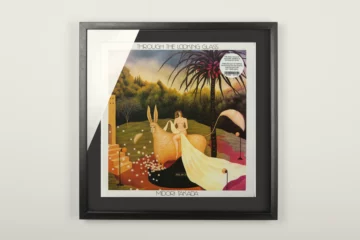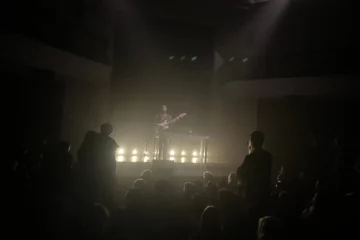Carlos Niño connects people. The 47-year-old Californian is a percussionist, DJ and producer of records such as those by André 3000’s. But above all, he is someone who brings people together. Niño has been connecting people for almost 30 years, a few miles outside of LA, in the mountains, in nature. That’s where he lives, with his family, with his little son. It’s where he invites his friends, the experimental spirits of the West Coast: Nate Mercereau, Sam Gendel, Deatoni Parks and many others who are open to the “experience”, as Niño says.
Carlos Niño & Friends have recently released a new album. It’s called “Placenta” and, like its predecessor, is out on International Anthem. Niño, who is something like the Rick Rubin of the experimental scene, says, “It’s a trip.”
Niño doesn’t have his camera on during the interview. Nevertheless, you get the feeling that you’re being scrutinised by watchful eyes. It may sound like a hippy retreat and hocus-pocus, but it is: Carlos Niño’s spiritual being speaks of a deep conviction that the world could be a better place than it is. It’s a conversation about flow, eternal mentors and reality accelerators.
What’s your first memory associated with music?
Carlos Niño:
It must have been like 1979, really early in my life! I remember sitting on my parent’s bed while my dad was listening to reel-to-reel tapes, popular Colombian music from Lucho Bermúdez. He was so fascinated by the wheels turning around. I immediately felt excited for it. Later in my life, I can also vividly remember myself dreaming in the car when my parents drove around.
What did you feel then?
Carlos Niño: I grew up in Reseda which is a suburb of Los Angeles in the San Fernando Valley. We would drive around quite a lot there, but I wasn’t excited about going anywhere with my parents. I just wanted to be on my skateboard. That was very different with my older cousin Ernesto. He had a Cadillac and took me around, playing music from Miles Davis, John Coltrane and Weather Report. One time, we were driving along the coast listening to the Stewart Copeland soundtrack for the movie »Rumble Fish« – a record that is important in my life to this very day. Or when the Beastie Boys album »Paul’s Boutique« came out, he would pick me up and we would drive up and down the Boulevard listening to it. So, as strongly as I wanted to get out of the backseat of my parent’s car, I never wanted to leave my cousin’s Cadillac.
Also, you never really left California, right?
Carlos Niño: I traveled a lot in my life, but I have always preferred coming back here. Part of that might be because I had a child at 22. When Azul came through, my roots got planted even further into this area. So yeah, I am very Californian. And my music is, too. Everything I experience here is in the music. That is the flow, the energy, being in and around Los Angeles.

You mention the flow. I remember you talking about breath and breathing being super important to you. Is that similar?
Carlos Niño: Absolutely, breath is everything. Sometimes I play so intensely that I have to remind myself to stay in my body. Breathing is essential in that, even though you do not always have that awareness front and center. It would be great if you had – and some beings may have figured it out. But to me, it’s something I am always working on.
Are we more present when we talk about being present?
Carlos Niño: To talk about the awareness of being present is almost missing the point, but: We have to talk about it in order to orientate within this realm. Laraaji says, flow goes the universe. And sometimes people say, go with the flow. What they are referring to isn’t: Go with the world. It’s more like: Go with your breath as the presence of being.
Is that already spiritual? Are you…
Carlos Niño: Everyone is a spiritual energy – whether they are aware of that or not. When we are within the earth realm, we intertwine and bring on different potential for different experiences. It’s one of our quests to align more harmonically between the various things that make up what we are.
How do you align these things, as you say?
Carlos Niño: Breathing and being aware is part of it. If we orientate in things that are destructive, mean and greedy, we are pretty far off from the alignment. Because alignment is about mobility and grace, the ability to be of aid and consideration. Ultimately, it’s all an expression of our experience in this realm. This is a continuous thing, it never stops – like breath or water.
»Sometimes I play so intensely that I have to remind myself to stay in my body.«
Carlos Niño
How important were mentors like Iasos to you in that sense?
Carlos Niño: Iasos was one of the closest people in my life. And he still is. It’s just different now because he is not here in his physical body, but he is there in a lot of things that I connect very deeply with. My ability to counsel with him, to learn from him, be in the forest with him and adventure with him – it’s a true delight to have that relationship in my life.
Do you think there is an after-life?
Carlos Niño: I don’t think of it as an after-life, rather than as continued living. Because nothing ever dies, it just changes. Even as the body decomposes or turns into ash it still merges into another form. It becomes something else and adds to life. Of course, there are sad and tragic things that we refer to as death. But ultimately, when somebody drops their body and transitions, the thing that’s so hard for those that remain here is how much change how rapidly they have to tend to. The change comes more quickly than everything else. And we do not understand that because we have all these feelings connected to the realm we are in and this other body is not anymore.
Can you explain that further?
Carlos Niño: Have you heard the piece »Existence« that we made with Photay? It has three versions which are on »An Offering« and »More Offerings«. For the latter one, I had Iasos record himself talking about existence. The messages he shares there are so profound, you should check it out.

As you talk about it reminds of this piece on »Placenta« in which Ariel Kalma speaks about the »I«.
Carlos Niño: Ariel is special. And both his piece and the one we recorded with Iasos are related to me. Not because either of them heard the other piece, but because both of them are people who think and feel this way.
Ariel shared some thoughts about the use of psychedelics. The cover of »Placenta« is very psychedelic. How do you feel about… mushrooms?
Carlos Niño: The idea of psychedelics is not saying enough. It’s not just about being mind-active rather than an opening of the field of your spiritual being, your higher self, your earth-body and physical heart. All the things in normal life – gravity, our digestive system, responsibilities, work, finance and so on – they get suspended in this greater state. Which informs how we can live more fully in the state of our waking life that we consider our reality.
How do you mean that?
Carlos Niño: Everyone can tap into this energy that we are. Not everyone does, actually most people don’t. But they can. That’s why I never give up on my vision for humans to wake up and live in a whole other version of reality. A reality with so much more love and cooperation and fun.
Where do you see that reality?
Carlos Niño: There are so many things available to us that we are missing. And psychedelics could help us to see. Still, they are not here to serve us. But we can interact with them. And when we do, we need to consider how we look out for them the way we look out for a friend – whether that’s a mushroom or a cactus or your breath-work.
Tell me more about that, please.
Carlos Niño: Just think about how many things there are you can connect with. For example, my dear friend Luis Pérez Ixoneztli from San Miguel de Allende is an instrument-maker and composer. He is the kind of person that can look at any plant – even weeds or undesirable kinds – and tell you what their properties are. How they can help you. And how you can help them in order to create together.
»Joy is above happiness, but above joy is bliss and above it comes rapture.«
Carlos Niño
So, how do you feel about shrooms?
Carlos Niño: I am in full support of all psychedelics. The more people tune into psychedelic experiences, the more likely they have breakthroughs in their life sooner. It doesn’t mean that they could not have it without them, but psychedelics accelerate reality. And I encourage that.
Talking about waking up and accelerating, isn’t it hard to go back to reality after … that?
Carlos Niño: I refer to that as landing. Because you want to integrate as much of what you truly are and experience in the reality you share with other beings. This reality here, it’s the average state, but it should be elevated by the experiences when you are in an accelerated psychedelic state. So, you don’t want to go back. You want to land safely and keep going with all the access and awareness in this average state in order to uplift it. That’s what my albums are: reports from these vast experiences.
»Placenta« is like a pure form of joy, then?
Carlos Niño: Joy and beyond joy. Iasos would say that everything has octaves, for example: Joy is above happiness, but above joy is bliss and above it comes rapture and so on. It never stops. There is no limit. That’s something that Iasos taught me. In everything you can find octaves which can go infinitely high. Because your experience is not fixed to one interpretation. It has the ability to expand. And »Placenta« reports from that.
When you refer to octaves, would you say that there is an acceleration in your discography in terms of these expansions?
Carlos Niño: For me? Yeah! Because I get better at expressing myself and communicating. At the same time, I only release albums that I would want to listen to. So, I can go pretty far back with my albums and they still feel highly resonant to me. They have a beautiful collective spiritual information in them.
Closing the circle of our conversation: Is »Placenta« something you would want to listen to as a kid in the car?
Carlos Niño: It would be a trip, man! But I have to say, my newly-born son responds more to Bob Marley right now.

